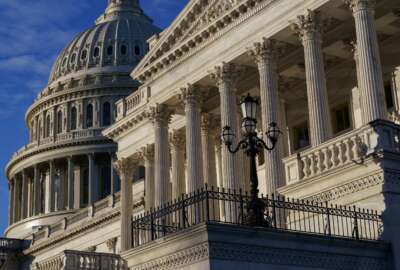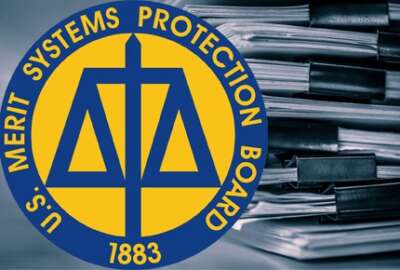
Federal employee disputes sit in limbo as MSPB nominees await confirmation
Appeals to MSPB have fallen to the wayside as the board has operated without the appointees needed to run its quorum.
For the past five years, appeals to the Merit Systems Protection Board have fallen to the wayside as the board has operated without the appointees needed to run its quorum. That’s now set to change as three nominees await approval from the Senate.
If confirmed, the nominees — Cathy Harris, Raymond Limon and MSPB’s current chief executive, Tristan Leavitt — will have to sort through a backlog of about 3,000 cases pertaining, but not limited to, whistleblower retaliations, unjust terminations and appeals from labor arbitration disputes within unions.
The MSPB was set in place decades ago to provide a safety net for federal employees who might suffer adverse actions within their agencies.
“Although the MSPB was moving forward and trying to get as much work done as possible, none of the decisions can be issued on an appeal unless there are at least two of the three members who are appointed,” federal employee attorney Heidi Burakiewicz said on the Federal Drive with Tom Temin. “So even when there was just one member remaining, although he was gallantly working on decisions and trying to move things forward, none of the decisions could issue.”
This is the first instance since MSPB’s creation in 1978 where there are no sitting board members. MSPB briefly operated without a quorum in 2003, and again starting in January 2017 when former board member Susan Tsui Grundmann stepped down.
MSPB has jurisdiction over any federal employee who’s faced an unresolved adverse action after 14 days. The board’s quorum is responsible for issuing final decisions on petitions that have been appealed.
Board members serve seven year staggered terms through presidential appointments. Mark Robbins, an Obama-era appointee, was the last board member to serve MSPB. His term ended in early 2019.
Federal employees can still go through the MSPB’s first level of litigation — administrative law judges — to resolve issues. But if a decision from an administrative judge is appealed, the dispute is then taken to the quorum.
However, Burakiewicz said some agencies have argued that the administrative judges were not constitutionally appointed correctly, meaning they don’t have authority over their cases. If that happens, their disputes fall to the quorum for resolution.
There are a number of reasons why Congress has yet to confirm the board’s current nominees, said Debra Roth, a partner at law firm Shaw, Bransford & Roth and a longtime specialist in taking federal managers’ cases to MSPB. Sometimes lawmakers disagree on whether a nominee is confirmable — as was the case during the Trump administration — or the Senate has too much on its plate.
“I like to say that the Hill is filled with Kabuki; you never really know what’s going on,” Roth said on the Federal Drive with Tom Temin. “I think there’s a lot of different things that go on, so it’s possible it’s many different things all at once.”
Copyright © 2025 Federal News Network. All rights reserved. This website is not intended for users located within the European Economic Area.




